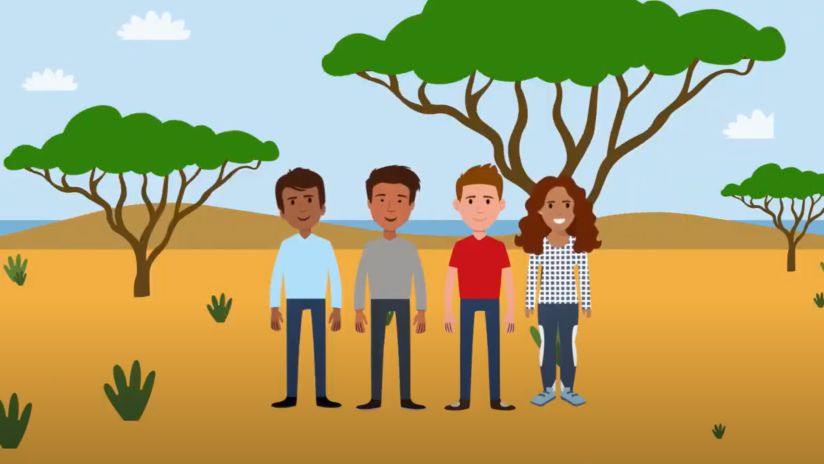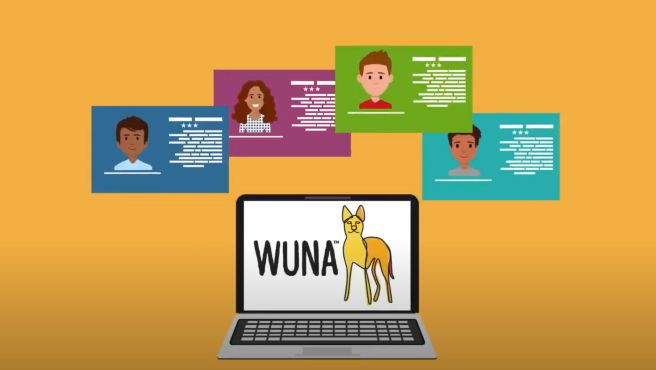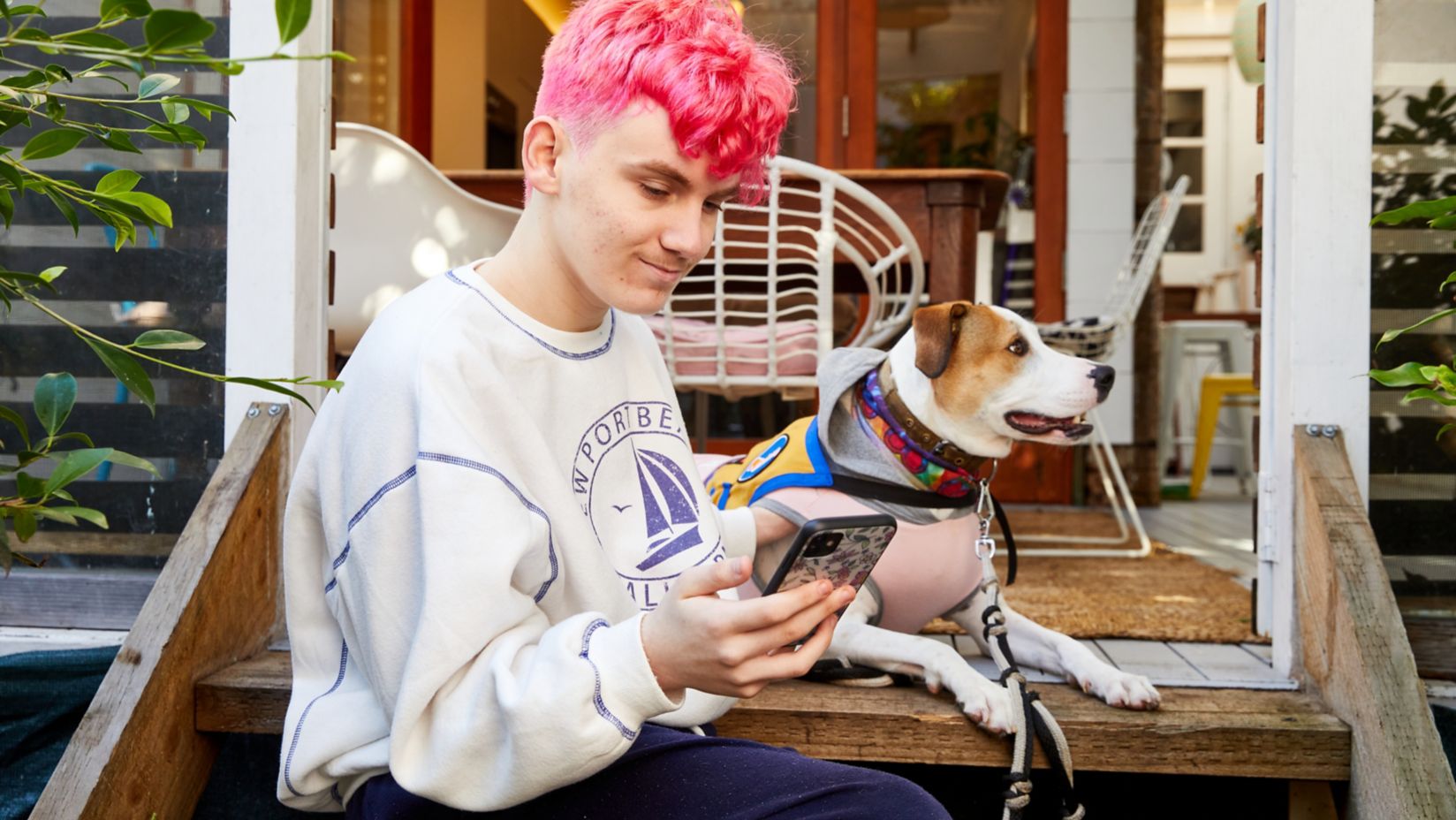Can technology make society more equitable? Humanitech and the Telstra Foundation believe it can
This NAIDOC week we’re taking a closer look at Humanitech partner Hold Access. They are delivering an innovative program helping to create equity for First Nations people, by giving them control of their digital identity.

If social media and AI-driven communications can be used to promote harmful human behaviour and biases, can these same tools also be used to address these challenges?
That’s the intriguing question posed by Adelide Mutinda, the Innovation Program Manager at Australian Red Cross’s Humanitech Lab – a dynamic innovation program that’s exploring new approaches for designing and developing technologies that power positive social change.
With funding from the Telstra Foundation, the second year of the Lab has just funded four pilot projects that are pushing the frontiers of social, environmental and accessible development. This NAIDOC week we’re taking a closer look at one of these projects directly addressing some of the issues that stand in the way of a genuine equity for First Nations people.
Hold Access: safeguarding the ultimate human right
Soon after we’re born, most of us become eligible to receive a birth certificate – a foundational document that will prove critical when we come to get inoculated, enrol in school, apply for a driving licence, or meet dozens of other personal milestones. But for thousands of Australians, particularly in remote communities, this basic human right is not always guaranteed. This “first inequity”, says Jason Davis, is often the beginning of a cycle of exclusion that will follow people for the rest of their lives.
In 2020, Jason set out to even the score and provide “digital self-determination” for the thousands of Australians who fall off the official map, by designing a wallet technology that can hold, verify and provide instant access to the dozens of documents most Australians collect in their lifetime. He called his technology WUNA, which means “to make informed choices” in the language of his Kalkadoon and Waanyi people. Already, in just three years, Jason’s software has been tested by nearly 1,000 people, adopted by three organisations, and won seven industry awards.

WUNA: Empowering First Nations Australians with digital identity
WUNA is effectively a digital wallet, which securely stores and enables verification of everything from identity documents to vaccination records, academic certificates, and records of employment. But this is no ordinary cloud storage solution. A sophisticated series of encryption, smart-card and control software means that users can securely authorise third parties to access their documents – making it a perfect ecosystem for sharing credentials with employers, training organisations, social services, or anyone that needs to verify your documents.
The element of individual “control” is critical. Jason says that over 30 years of working in Aboriginal policy and cultural safety programs has taught him that what people need most of all is control.
The whole idea is to help users take back control of where they’re going – having services work for them rather than always telling them what to do. It’s a different conversation when an individual needs a tool, rather than being ordered to use it. It enables them to navigate their own pathways, and feel they’re determining their own destiny. That’s when you get real buy-in in a relationship.
- Jason Davis
Beyond Jobseekers: Diverse applications of WUNA
When Jason’s company, Hold Access, was selected for validating its technology with Humanitech last September, Jason reached out to one of his first partners, the NT School of Distance Education, which successfully tested the software with 49 of its staff and students. In the current pilot phase, Jason will have a chance to more comprehensively assess WUNA through a youth development hub in Port Lincoln, where the Red Cross will be working with the local city council, businesses, trainers and mentors to provide job-ready skills and tools to 30-40 young jobseekers.
“The timing couldn’t be better,” says Adelide Mutinda, Humanitech’s Innovation Manager. “The project will let us test Jason’s technology with multiple stakeholders, from jobseekers to employers, the local council, and other training organisations. Every stakeholder will have a touchpoint with the platform – from participants holding their documents, to trainers uploading certificates, employers checking people’s skillsets. It’s a perfect opportunity to directly pilot the technology with the kind of organisations it’s designed to be used by.”
As well as his partnership with Humanitech, Jason has alliances with three other organisations that are trialling his software: an asset management company that’s using it to verify labour hire candidates; an international charity, supporting its work with rough sleepers; and a family violence agency that’s using it as part of its secure reporting infrastructure. It’s also talking to two banks that are considering using WUNA to help clients with the mandatory ID checks for opening a new account.
But despite these diverse testing grounds, Jason Davis is not resting on his laurels. Through surveys that have reached more than 500 people across the Top End, Jason has realised his “modern message-stick technology” has applications far beyond the needs of young jobseekers: among social services verifying eligibility for support; people who’ve lost documents in fires and floods; people who are leaving prison and need ‘transitional documents’ to start rebuilding their lives.
“For me, this is about nothing short of our human right to self-determination, which is something that every person needs to live their own life,” says Jason. “This right to be acknowledged, to be in charge of your own destiny, is so important – in a way it’s the ultimate human right.”


